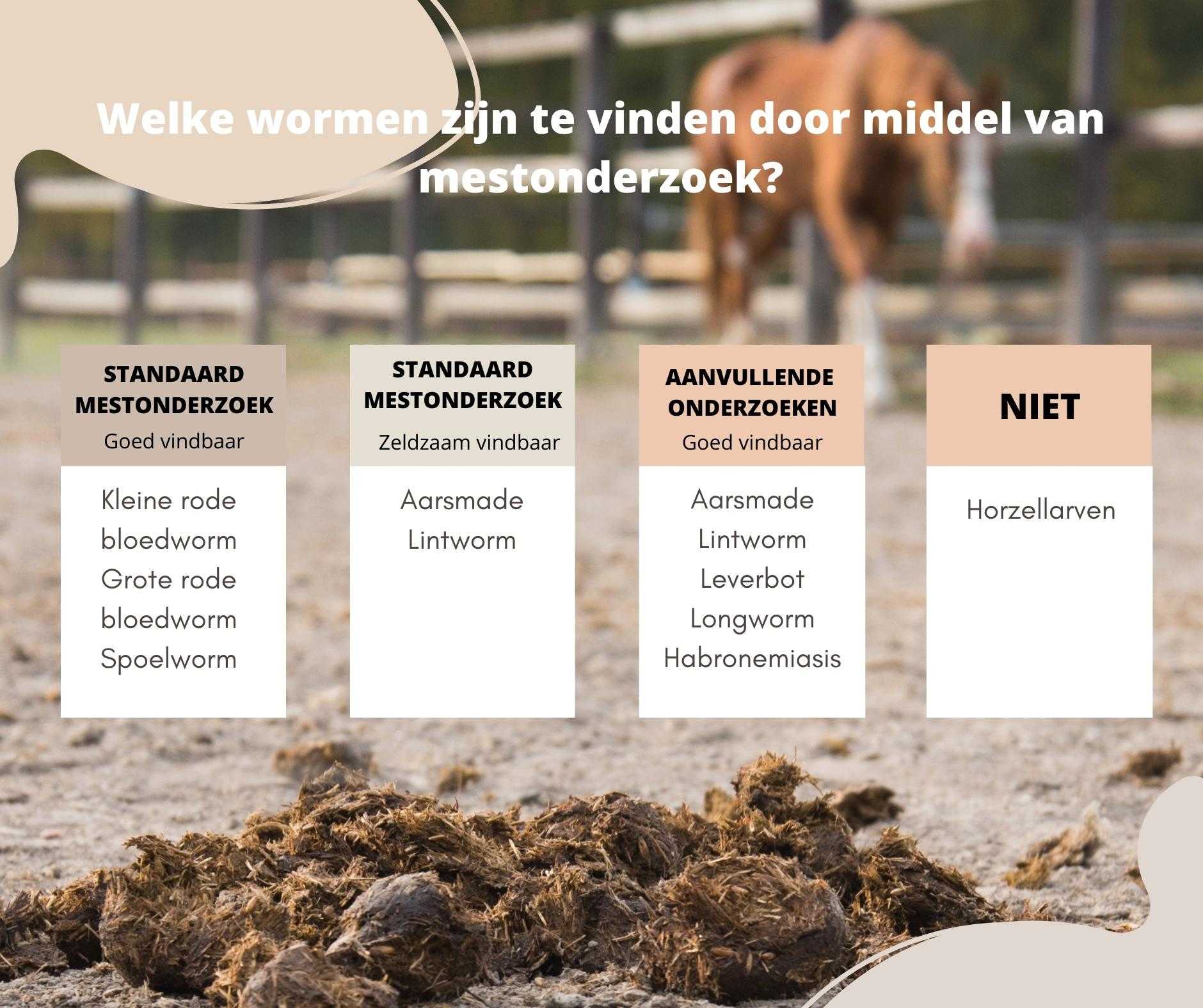Not all worms can be detected through fecal testing. In this blog, we describe which gastrointestinal worms are or aren’t detectable, and for which additional tests are advised.
Small and large redworm: These are the most common gastrointestinal worms in the Netherlands. The eggs of small and large redworm are indistinguishable but are very well detectable via fecal testing. It is important to perform a fecal test every 2.5 months to monitor the cycle properly.
Roundworm: This is typically a worm found in young horses and is generally well detectable. However, for young horses in less secure environments (frequent change or no manure removal), we advise an additional extended roundworm analysis.
Foal worm: Easily detectable via fecal testing.
Tapeworm: We occasionally see tapeworm segments in a fecal test, but this is the exception rather than the rule. If you want to be certain your horse is not carrying a tapeworm infection, use the Equisal tapeworm test.
Botfly larvae: The botfly lays its eggs on the outside of the horse’s body and cannot be detected through fecal testing. You can choose to deworm your horse preventively at the end of the year, but keep in mind that healthy horses are often capable of expelling the larvae themselves. The most important thing is to remove as many botfly eggs as possible. Heavy infestations are rare.
Pinworms: Pinworms lay their eggs around the anus. Like tapeworms, pinworms are rarely detected in regular fecal testing. If there is a strong suspicion of a pinworm infection, an additional test can be performed.
Lungworm and liver fluke: These can be reliably detected through fecal testing, but this requires a different method than standard testing, and is therefore considered an additional examination.
Habronemiasis: (summer sores) can be found via fecal testing, but not reliably enough to confirm that the stomach worm is absent when the result is negative.
Want to learn more about intestinal worms? Click here.

